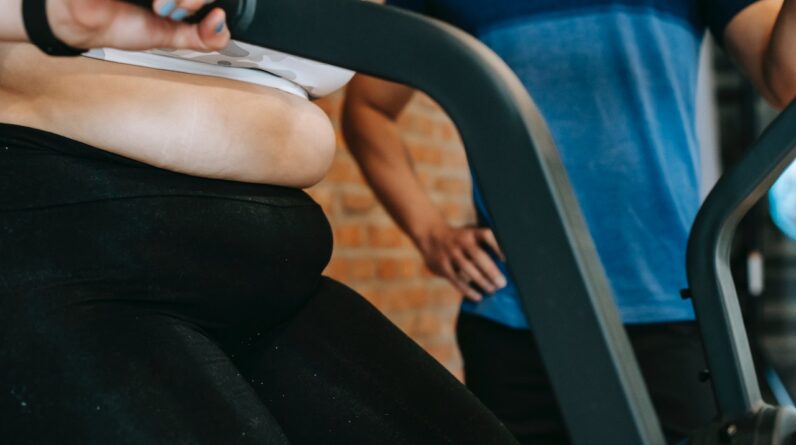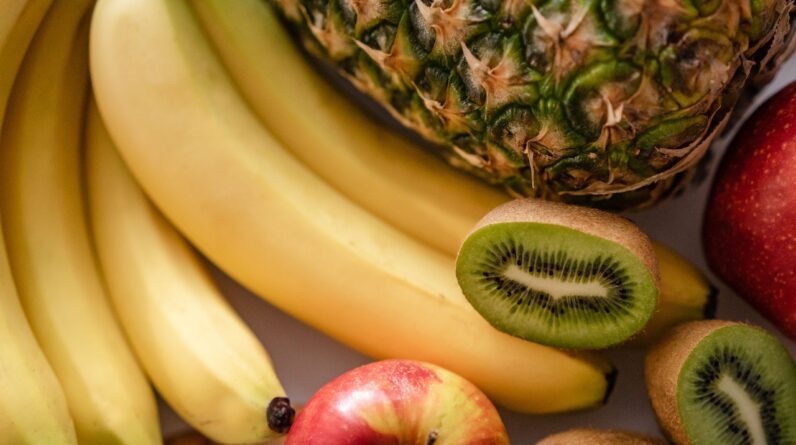
Lower belly fat is a common concern for many people around the globe. It’s not just about aesthetics – excess belly fat can have serious health implications. So, how do you go about losing it? This guide will walk you through some effective strategies.
Understanding Belly Fat
Why Lower Belly Fat is Stubborn
When it comes to losing weight, some areas of the body are more stubborn than others – and the lower belly is one of them. This is largely due to the type of fat that is found here: visceral fat, which tends to cling to the abdominal area and is resistant to typical weight loss efforts.
Health Risks Associated with Lower Belly Fat
Excess lower belly fat isn’t just a cosmetic issue; it’s also a health risk. It can increase the likelihood of several health issues, including type 2 diabetes, heart disease, and certain types of cancer.
Dietary Changes for Lower Belly Fat Reduction
Incorporate Protein in Your Diet
Protein is a crucial nutrient when it comes to weight loss. It can reduce cravings, boost metabolism, and aid in fat loss, especially in the belly area.
Stay Hydrated
Water is essential for all bodily functions, including fat loss. Staying hydrated can help with weight loss by keeping you full and enhancing your metabolism.
Limit Sugar Intake
Sugar is a major contributor to belly fat. Cutting back on sugar can lead to a significant reduction in belly fat.
Include Fiber-Rich Foods
Foods high in fiber can aid in weight loss by slowing down digestion and making you feel full, which can lead to a reduction in overall calorie intake.
Exercises to Burn Lower Belly Fat
Cardio Exercises
Cardio, or aerobic exercise, is one of the most effective ways to improve health and burn fat. Exercises such as walking, running, or swimming are excellent ways to burn calories and reduce belly fat.
Strength Training
Strength training, such as weight lifting, can also help in reducing belly fat by increasing muscle mass, which in turn boosts metabolism.
High-Intensity Interval Training (HIIT)
HIIT is an exercise routine that alternates between intense bursts of activity and fixed periods of less-intense activity. It is particularly effective in burning belly fat.
Lifestyle Changes for a Flat Belly
Importance of Sleep
Getting adequate sleep is vital for overall health and weight management. Poor sleep can disrupt the balance of hormones that regulate appetite, leading to weight gain, including belly fat.
Stress Management
High stress levels can affect your weight and can lead to additional belly fat. It’s crucial to include stress-reducing activities, like yoga or meditation, in your daily routine.
Conclusion: Final Thoughts on Lower Belly Fat Reduction
In the quest to lose lower belly fat, a comprehensive approach is key. It’s not about just diet or just exercise; it’s about combining these factors with overall lifestyle changes. Remember, consistency is crucial. It may take time, but with dedication, you can achieve your goal of a flatter, healthier belly.
FAQs
1. Why is it difficult to lose lower belly fat? Lower belly fat is often stubborn due to the type of fat that is stored there. It’s visceral fat, which tends to be resistant to typical weight loss efforts.
2. Can diet alone help in reducing lower belly fat? While a healthy diet can significantly contribute to fat loss, combining it with regular exercise and lifestyle changes will yield the best results.
3. What types of exercises are most effective for losing lower belly fat? Cardio exercises, strength training, and high-intensity interval training (HIIT) have all been shown to be effective in reducing belly fat.
4. How does sleep affect belly fat? Poor sleep can disrupt the balance of hormones that regulate appetite, leading to weight gain, including belly fat.
5. How does stress contribute to belly fat? High stress levels can disrupt hormonal balance, leading to increased appetite and fat storage, particularly in the belly area.
6. Is it possible to target fat loss in the lower belly area specifically? While it’s not possible to target fat loss in one specific area (a concept known as “spot reduction”), overall fat loss will include loss from the lower belly. A combination of a balanced diet, regular exercise, and healthy lifestyle habits will help reduce body fat, including lower belly fat.
7. Can certain foods directly cause lower belly fat? While no specific food directly causes lower belly fat, overeating and a diet high in processed foods, sugary beverages, and unhealthy fats can lead to weight gain and increased fat storage in the belly area.
8. How does protein in the diet help with belly fat reduction? Protein is crucial for weight loss as it boosts metabolism, reduces appetite, and regulates weight-regulating hormones. This can lead to a decrease in belly fat.
9. What role does hydration play in losing belly fat? Staying hydrated aids digestion, keeps you feeling full, and may increase the number of calories you burn, all contributing to weight loss and fat reduction.
10. Are there any quick fixes to losing lower belly fat? There are no quick fixes when it comes to healthy and sustainable weight loss. Losing lower belly fat requires a combination of balanced nutrition, regular physical activity, adequate sleep, and stress management. Remember, it’s about making long-term lifestyle changes, not short-term diets.







